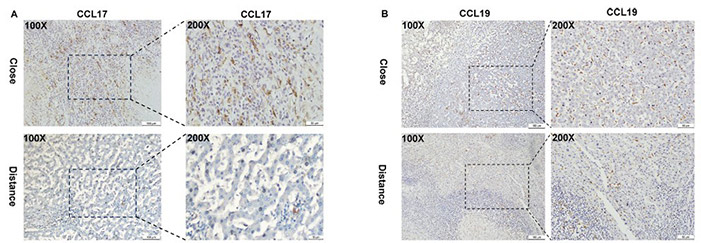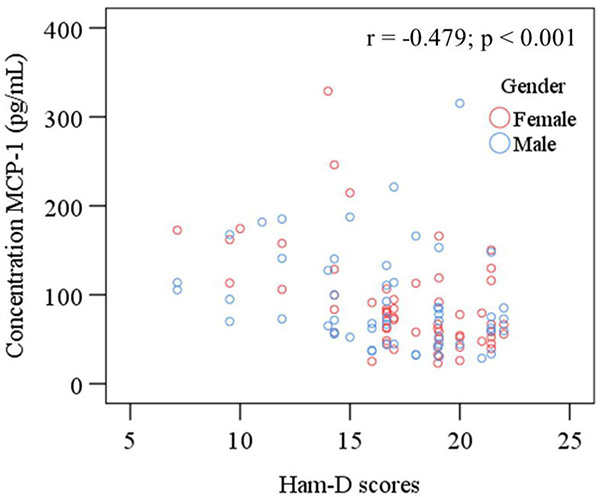Cytokine and Receptor Analysis
Background
Cytokines and chemokines are essential signaling molecules involved in the regulation of immune responses, inflammation, hematopoiesis, and cellular communication. Their expression and receptor engagement govern critical biological processes including immune cell activation, migration, differentiation, and effector function. Given their roles in both physiological and pathological conditions—such as autoimmunity, cancer, and infectious diseases—precise quantification and functional analysis of cytokines, chemokines, and their receptors is of significant scientific and clinical interest.

Figure 1. Schematic representation of prototypical receptors from five of the major cytokine receptor superfamilies. (O’Shea et al., 2019)
To address these needs, Creative BioMart has developed a revolutionary platform designed to enhance the enrichment and highly sensitive detection of cytokine-secreting cells. This platform enables researchers to explore immune dynamics at an unprecedented single-cell resolution and to investigate inflammatory biomarkers with high sensitivity and specificity. In addition, we offer a comprehensive suite of tools for cytokine and chemokine research, including recombinant active proteins, high-affinity antibodies, ELISA kits, multiplex assays, qPCR primers, and more.
Why Analyze Cytokines and Their Receptors?
- Disease Diagnosis and Monitoring: In many diseases, the levels of certain cytokines and the expression of their receptors are altered. For example, in autoimmune diseases like rheumatoid arthritis, there is often an overproduction of pro-inflammatory cytokines such as TNF-α, IL-6, and IL-1β. Measuring the levels of these cytokines in the blood or synovial fluid can help in the diagnosis of the disease. Moreover, monitoring the changes in cytokine levels during the course of treatment can provide information about the efficacy of the therapy.
- Drug Development: Understanding the interactions between cytokines and their receptors is crucial for the development of therapeutic agents. For example, monoclonal antibodies that target specific cytokines or their receptors have been developed to treat various inflammatory and autoimmune diseases.
- Basic Research in Immunology and Cell Biology: The analysis of cytokines and their receptors helps to elucidate the complex mechanisms of cell- cell communication in the immune system and other tissues. It provides insights into how cells respond to different stimuli and how these responses are regulated at the molecular level. This knowledge is fundamental for understanding the normal functioning of the immune system and the pathogenesis of various diseases.
What We Offer?
Creative BioMart provides a diverse selection of cytokine and chemokine detection platforms tailored for human, mouse, and rat samples. Our singleplex and multiplex assay formats are validated for a broad panel of targets, including but not limited to:
|
Type |
Cytokine |
|---|---|
|
Human Cytokines |
IL-1β, IL-2, IL-4, IL-6, IL-10, IL-12, TNF-α, IFN-γ, VEGF, MCP-1, RANTES, and many others—over 60 targets available. |
|
Mouse Cytokines |
IL-1β, IL-2, IL-6, IL-10, TNF-α, IFN-γ, MIP-1α, MCP-1, and VEGF. |
|
Rat Cytokines |
IL-1β, IL-2, IL-6, TNF-α, MCP-1, MIP-1α, and VEGF among others. |
|
Human Chemokines |
CXCL1, CCL2, CXCL8, CXCL10, CCL17, and over 30 additional targets. |
* NOTE: For your convenience, each cytokine name above links to its corresponding protein or gene page, where you’ll find detailed information on function and relevance. In addition to cytokine and receptor analysis, CBM also offers a wide range of recombinant proteins to support your broader research needs.
All assays are optimized for:
- Ultra-low detection limits
- Wide dynamic range (over four orders of magnitude)
- Minimal sample volume requirements
- High tolerance for complex biological matrices
Service Highlights
- Magnetic Enrichment of Viable Cytokine-Secreting Cells: Enables detection of rare antigen-specific T cells at frequencies as low as one in a million.
- Real-Time Functional Analysis of Isolated Cells: Enables immediate application in downstream applications such as cell culture, proliferation assays, and transcriptomic profiling.
- Single-Cell Cytokine Secretion Analysis: Provides fine-grained insights into the heterogeneity and functionality of immune subsets.
- Simultaneous Multiparameter Phenotyping: Allows assessment of cytokine-secreting cells alongside surface markers for activation and subset identification.
- Multiplex Detection of Cytokine Co-Expression: Enables comprehensive functional profiling of immune cells.
- Compatibility with Peptide-MHC Tetramer Staining: Supports concurrent analysis of antigen specificity and effector functions.
Why Choose Us?
- Innovative Technology: Our cutting-edge electrochemiluminescence detection platform redefines sensitivity and throughput in cytokine and chemokine profiling.
- Single-Cell Precision: Gain insights into immune regulation at the single-cell level, a capability critical for immuno-oncology, vaccine research, and autoimmunity studies.
- Comprehensive Coverage: We support a wide variety of species and target panels, making our platform ideal for both translational and basic research.
- Immediate Applicability: Isolated viable cells are ready for downstream applications, eliminating the need for prolonged processing.
- Expert Support: Our team of immunologists and technical specialists are committed to helping you design, execute, and interpret your experiments.
- Standardized Flexibility: Enjoy the perfect balance of consistency and customization with our modular assay formats—adaptable to your unique research needs without compromising data quality or reproducibility.
Case Study
* NOTE: We prioritize confidentiality to safeguard our clients’ technology and intellectual property. As an alternative, we present selected published research articles as representative case studies. For details on the assay services and products used in these studies, please refer to the relevant sections of the cited literature.
Case 1: CCL17 and CCL19 are markers of disease progression in alveolar echinococcosis
Chen et al., 2024. doi:10.1016/j.cyto.2024.156669
This study aimed to identify key genetic markers involved in the progression of alveolar echinococcosis (AE), a highly lethal parasitic disease. Using data from the GEO database, researchers applied Weighted Correlation Network Analysis and Differential Expression Analysis to pinpoint CCL17 and CCL19 as critical genes. Immunohistochemistry and co-localization techniques confirmed their increased expression in liver lesions of AE patients. A mouse model further revealed that both chemokines, along with the macrophage marker F4/80, were progressively upregulated, peaking during late-stage infection. The findings suggest that CCL17 and CCL19 play key roles in promoting macrophage aggregation through the chemokine pathway, closely correlating with infection progression and liver fibrosis.

Figure 2. Localization of CCL17 and CCL19 in the liver of AE patients. (A) CCL17 IHC staining. (B) CCL19 IHC staining. (Chen et al., 2024)
Case 2: Monocyte chemoattractant protein-1 in major depressive disorder
Proma et al, 2020. doi:10.1101/2020.11.26.20239293
This study investigated the role of monocyte chemoattractant protein-1 (MCP-1) in major depressive disorder (MDD) by measuring serum MCP-1 levels in 114 MDD patients and 106 healthy controls. Using ELISA kits and the Hamilton Depression Rating Scale (Ham-D), the researchers found that serum MCP-1 levels were significantly lower in MDD patients, with a notable negative correlation between MCP-1 levels and depression severity. Female patients with higher Ham-D scores showed particularly low MCP-1 levels. Receiver operating characteristic (ROC) analysis indicated good diagnostic potential for MCP-1, with an AUC of 0.837. These findings suggest that MCP-1 may play a meaningful role in the pathophysiology of MDD and could serve as a potential biomarker for assessing depression risk.

Figure 3. Scatter plot of serum monocyte chemoattractant protein-1 (MCP-1) and Ham-D scores with gender differences among MDD patients. (Proma et al, 2020)
Customer Testimonials
-
“I’ve used many multiplex kits, but the sensitivity and low background on Creative BioMart’s assays are unmatched. Even with complex matrices, the data was clean and reproducible.”
— Principal Investigator | Immunology Lab
-
"We partnered with Creative BioMart for cytokine profiling in our checkpoint inhibitor program, and the results exceeded expectations. Their panel covered all key inflammatory markers, and the sensitivity allowed us to detect subtle immune changes in early-stage tumor models."
— R&D Director | Global Biotech Company
-
"Creative BioMart’s cytokine and receptor analysis service played a critical role in our autoimmune disease study. They helped us identify upregulated IL-17 and IL-23 pathways in patient samples, which aligned perfectly with our RNA-seq results. Their scientific team even helped us interpret some tricky multiplex assay results."
— Immunologist | Academic Research Institute
-
"We were looking for a reliable partner to assess cytokine storm potential in our cell therapy candidates. Creative BioMart provided a customized cytokine panel and supported us through every step, including sample prep and bioinformatics. The high-throughput data helped us screen multiple batches efficiently."
— Principal Scientist | Mid-sized Pharma Company
-
"Creative BioMart’s cytokine and receptor profiling helped validate a key IL-6-related biomarker for our solid tumor immunotherapy platform. The multiplex ELISA data they provided was consistent across biological replicates and matched our internal flow cytometry findings. We'll definitely use them again."
— Translational Science Lead | Oncology Startup
FAQs
-
Q: What is the minimum sample volume required?
A: Our assays require minimal input, often less than 25 µL per well, making them ideal for limited or precious samples. -
Q: Can I use isolated cytokine-secreting cells for downstream applications?
A: Yes. Our magnetic enrichment technology preserves cell viability, allowing for immediate use in culture, flow cytometry, or molecular analysis. -
Q: Do you offer custom panel development?
A: Absolutely. We can design customized multiplex panels tailored to your research needs, across human and animal models. -
Q: How sensitive is your detection platform?
A: Our platform offers ultra-sensitive detection with limits as low as sub-picogram levels, suitable for detecting rare cytokine events in complex matrices. -
Q: Are your assays compatible with flow cytometry?
A: Yes. We offer both standalone cytokine detection kits and flow-compatible formats, including cytokine capture assays and tetramer staining protocols.
Resources
Related Services
- Intracellular Cytokine Detection and Activity Assay
- Biomarker Service
- Multiplex Protein Detect Assay
- Protein Pathway Profiling
- GPCR Screening Assays
- Transcription Factor Assay
- Epigenetic Kits
Related Products
References:
- Chen J, Ma Y, Liu Y, et al. CCL17 and CCL19 are markers of disease progression in alveolar echinococcosis. Cytokine. 2024;181:156669. doi:10.1016/j.cyto.2024.156669
- O’Shea JJ, Gadina M, Siegel RM. Cytokines and cytokine receptors. In: Clinical Immunology. Elsevier; 2019:127-155.e1. doi:10.1016/B978-0-7020-6896-6.00009-0
- Proma MA, Daria S, Islam S, et al. Monocyte chemoattractant protein-1 levels are associated with major depressive disorder. Published online November 30, 2020. doi:10.1101/2020.11.26.20239293
Contact us or send an email at for project quotations and more detailed information.
Quick Links
-

Papers’ PMID to Obtain Coupon
Submit Now -

Refer Friends & New Lab Start-up Promotions

